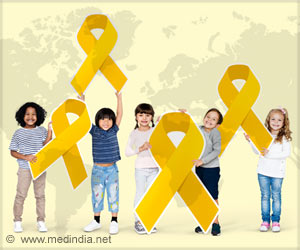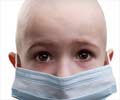Childhood cancer survivors are at a higher risk of developing a range of heart disease due to cancer therapy, reveals a new study.
Childhood cancer survivors are more likely to develop a range of heart disease due to cancer therapy, reports a new study. The findings of the study are published in the American Heart Association's journal
Circulation.//
Most studies of this survivor group have focused on heart failure related to anthracyclines, a class of chemotherapy medications used to treat many types of cancer. In this new study, researchers used data from Ontario's health care system to investigate the full spectrum of heart disease subtypes in close to 7,300 childhood cancer survivors (diagnosed at an average age of 7) - compared to more than 36,000 people of the same age, gender and postal code without cancer. Heart disease studied included coronary artery disease, arrhythmias, valve abnormalities, cardiomyopathy, heart failure and pericardial disease.
TOP INSIGHT
Survivors of childhood cancer are at a higher risk of developing a range of heart disease due to cancer therapy.
Read More..
A team of researchers found that, even at relatively young ages, childhood cancer survivors have up to a threefold increase for any cardiac event and up to a tenfold increased risk for heart failure when compared to their cancer-free peers. Additionally, survivors exposed to higher doses of anthracycline chemotherapy, as well as those diagnosed with diabetes, hypertension or both, are significantly more likely to experience heart disease as adults.
"While anthracycline chemotherapy may induce heart disease, many patients require this cancer treatment to survive," said Paul Nathan, M.D., M.Sc., senior author of the study and staff oncologist in the division of hematology/oncology and senior associate scientist in the Child Health Evaluative Sciences program at The Hospital for Sick Children (SickKids) in Canada.
"Doctors should address heart disease risk factors - such as diabetes and hypertension - that can be modified," said Nathan, who is also a professor in the pediatrics and health policy, management & evaluation departments at the University of Toronto.
Childhood cancer survivors appear to have a higher likelihood of metabolic conditions such as diabetes, hypertension and unhealthy levels of one or more kinds of lipid (fat) in the blood. These modifiable risk factors appear to interact with chemotherapy or radiation that may be toxic to the heart, prematurely age the heart and accelerate the development of heart disease.
"The close connections between lifestyle, metabolic disorders and cardiac disease warrant careful follow-up and monitoring of the childhood cancer survivor population," Nathan said.
The research team used the Pediatric Oncology Group of Ontario Networked Information System (POGONIS), a provincial pediatric cancer registry, to identify five-year cancer survivors who were diagnosed before age 18 and treated in a pediatric cancer center between 1987 and 2010. Each childhood cancer survivor was matched to five cancer-free peers for the purposes of this comparative study. During an average of 10 years of follow-up, nearly 3% of childhood cancer survivors experienced one or more cardiac events, compared to less than 1% of those without cancer.
The research team was unable to assess lifestyle factors such as smoking, physical activity, diet and alcohol use. A more comprehensive understanding of these and other modifiable factors and their impact on cardiovascular disease among childhood cancer survivors could be gained through future work involving the use of data from multiple sources.
Source-Eurekalert

 MEDINDIA
MEDINDIA


 Email
Email










